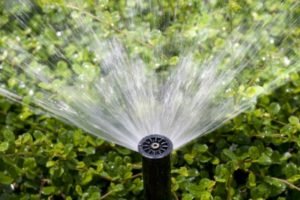How Plumbing Inspections Can Help Avoid Disasters
Spring showers can be great for the blooming flowers – but not so great for your home’s plumbing system. After heavy rains, you may notice that your tap water is brown or discolored. This may be rust, or it could be a sign that surface water has contaminated your water supply. If you notice this problem, you should get professional help right away.
Surface water may contain dangerous levels of pesticides, sewage, or other contaminants that can get you sick. Unfortunately, contaminated water is just one of many problems that rainy weather can bring. If you want to make sure your home is ready for the rainy season ahead, be sure to keep the following tips in mind.
Don’t Ignore Weak or Broken Pipes
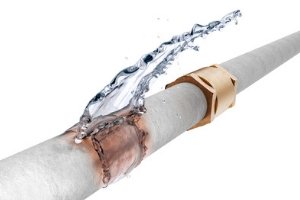 If you’ve ever had to deal with a broken pipe, you know how much of a hassle it can be. Broken pipes can occur when the weight of rainwater causes the ground to shift, which increases pressure on underground pipes. If your pipes are too old or weak, they can easily break.
If you’ve ever had to deal with a broken pipe, you know how much of a hassle it can be. Broken pipes can occur when the weight of rainwater causes the ground to shift, which increases pressure on underground pipes. If your pipes are too old or weak, they can easily break.
A telltale sign of a broken pipe is grit or other debris in your water after it rains. You should also pay attention to mold, water pooling, dampness, water pressure changes, and cracks around your home or property – you may be dealing with a broken pipe, and should get help as soon as possible.
A slab leak is a particular kind of leak that occurs in the pipes under the foundation of your home. This kind of broken pipe is especially problematic since it can cause a lot of expensive damage. If they’re bad enough, they can even cause the foundation of your home to collapse. Whenever water damages part of your home, your health is also at risk. Damp areas attract vermin and encourage the growth of mold. Regular plumbing inspections can help avoid these kinds of problems.
Make Sure Your Sewer System is in Good Shape
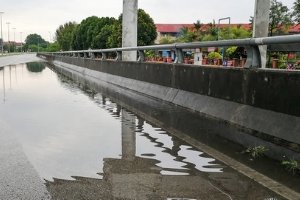 Your sewer system can also be the source of rainy weather woes. If your sewer lines fill up with rainwater, you may experience backup coming out of your drains. Your sewer lines may also become blocked with debris that washes into them during heavy rains.
Your sewer system can also be the source of rainy weather woes. If your sewer lines fill up with rainwater, you may experience backup coming out of your drains. Your sewer lines may also become blocked with debris that washes into them during heavy rains.
Blockages can lead to flooding – both in your yard and inside your home. You should immediately contact a professional if you notice soggy areas or water pooling on your property.
These are signs that you have a leak in your system. Also, be sure to check out your basement and crawl spaces after heavy rains to make sure you aren’t experiencing any issues. Flood water can contain a lot of hazardous materials and bacteria, and also invite critters and mold. It’s best to regularly check your sewer system before this kind of damage occurs.
Schedule a Plumbing Inspection to Prevent Major Disasters
 For peace of mind, you should schedule a plumbing inspection every spring before the rainy weather sets in. Spring is a wonderful season, and you should be enjoying it – not stressing over plumbing repairs.
For peace of mind, you should schedule a plumbing inspection every spring before the rainy weather sets in. Spring is a wonderful season, and you should be enjoying it – not stressing over plumbing repairs.
A professional can check your pipes and sewer system to make sure they’re prepared for the season ahead. Do you have experience with broken pipes or flooding from heavy rains?
How did you handle it? Tell us in the comments below. If you’re ready to schedule a professional inspection, contact Apple Valley Plumbing today at (612) 387-1207.

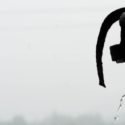
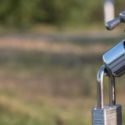
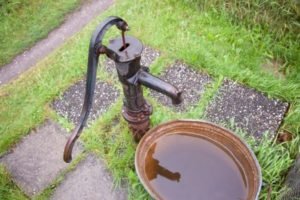 Your faucets are prone to freezing when it dips below zero, which can create a number of problems. When the faucets and surrounding pipes freeze, they often crack or even burst.
Your faucets are prone to freezing when it dips below zero, which can create a number of problems. When the faucets and surrounding pipes freeze, they often crack or even burst.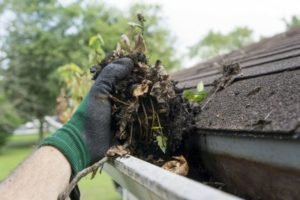 Over the winter, you likely have gathered branches and leaves in your gutters and downspouts, which is a big problem. It blocks the water from flowing out, which can create water damage in your home and mold growth.
Over the winter, you likely have gathered branches and leaves in your gutters and downspouts, which is a big problem. It blocks the water from flowing out, which can create water damage in your home and mold growth.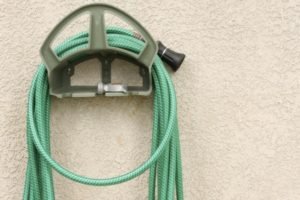 Hopefully, you disconnected your hoses from your outdoor faucets before the winter. If you didn’t plan to do this next year.
Hopefully, you disconnected your hoses from your outdoor faucets before the winter. If you didn’t plan to do this next year.